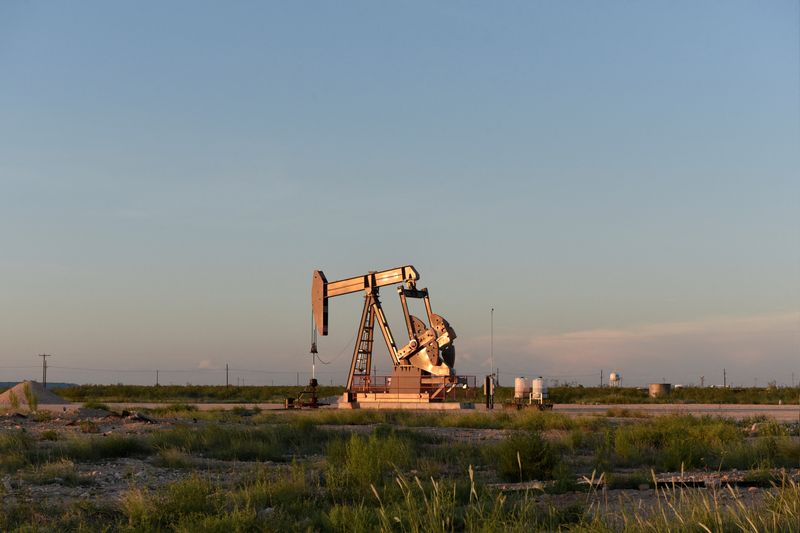Oil rises as investors digest US election fallout
By Nicole Jao
NEW YORK (Reuters) -Oil prices rose more than 1% on Thursday as the market weighed how President-elect Donald Trump's policies would affect oil supplies and as drillers cut output while bracing for Hurricane Rafael.
A strong dollar and lower crude imports in China limited gains.
On Wednesday, the election of Republican former President Trump initially triggered a sell-off that pushed oil down more than $2 as the dollar rallied. Crude prices later pared losses to settle down by less than 1%.
Brent crude oil futures gained $1.05, or 1.4%, to $75.97 a barrel by 1:32 p.m. EST (1832 GMT). U.S. West Texas Intermediate (WTI) crude rose $1.06, or 1.48%, to $72.75.
Prices drew some support from the view that Trump's incoming administration may tighten sanctions on Iran and Venezuela. Traders were also watching the conflict in the Middle East, said Saxo Bank analyst Ole Hansen, noting that downside factors include a strong dollar and sluggish demand.
The U.S. Federal Reserve is expected cut interest rates by a quarter of a percentage point at the close of its policy meeting on Thursday. Interest rate cuts typically boost economic activity and energy demand.
"Historically, Trump's policies have been pro-business, which likely supports overall economic growth and increases demand for fuel," said Priyanka Sachdeva, senior market analyst at Phillip Nova. "However, any interference in the Fed's easing policies could lead to further challenges for the oil market."
The expectation that Trump will reimpose stricter enforcement of oil sanctions also supported prices.
"The perception is there is going to be tighter sanctions, or enforce the current sanctions, on Iran," said Phil Flynn, analyst at Price Futures Group.
In his first term, Trump also put in place harsher sanctions on Venezuelan oil. Those measures were briefly rolled back by the Biden administration but later reinstated.
Actual, rather than feared, supply cuts also lent support. In the U.S. Gulf of Mexico, about 17% of crude output or 304,418 bpd has been shut because of Hurricane Rafael, the U.S. Bureau of Safety and Environmental Enforcement said.
The dollar index eased nearly 1% on Thursday, but was still at a two-week high, after surging following Trump's victory in the U.S. presidential election. A strong dollar makes oil more expensive for other currency holders and tends to weigh on prices.
Downward pressure also came from data showing that crude oil imports in China fell 9% in October, the sixth consecutive month showing a year-on-year decline, as well as from a rise in U.S. crude inventories.
Source: Investing.com
